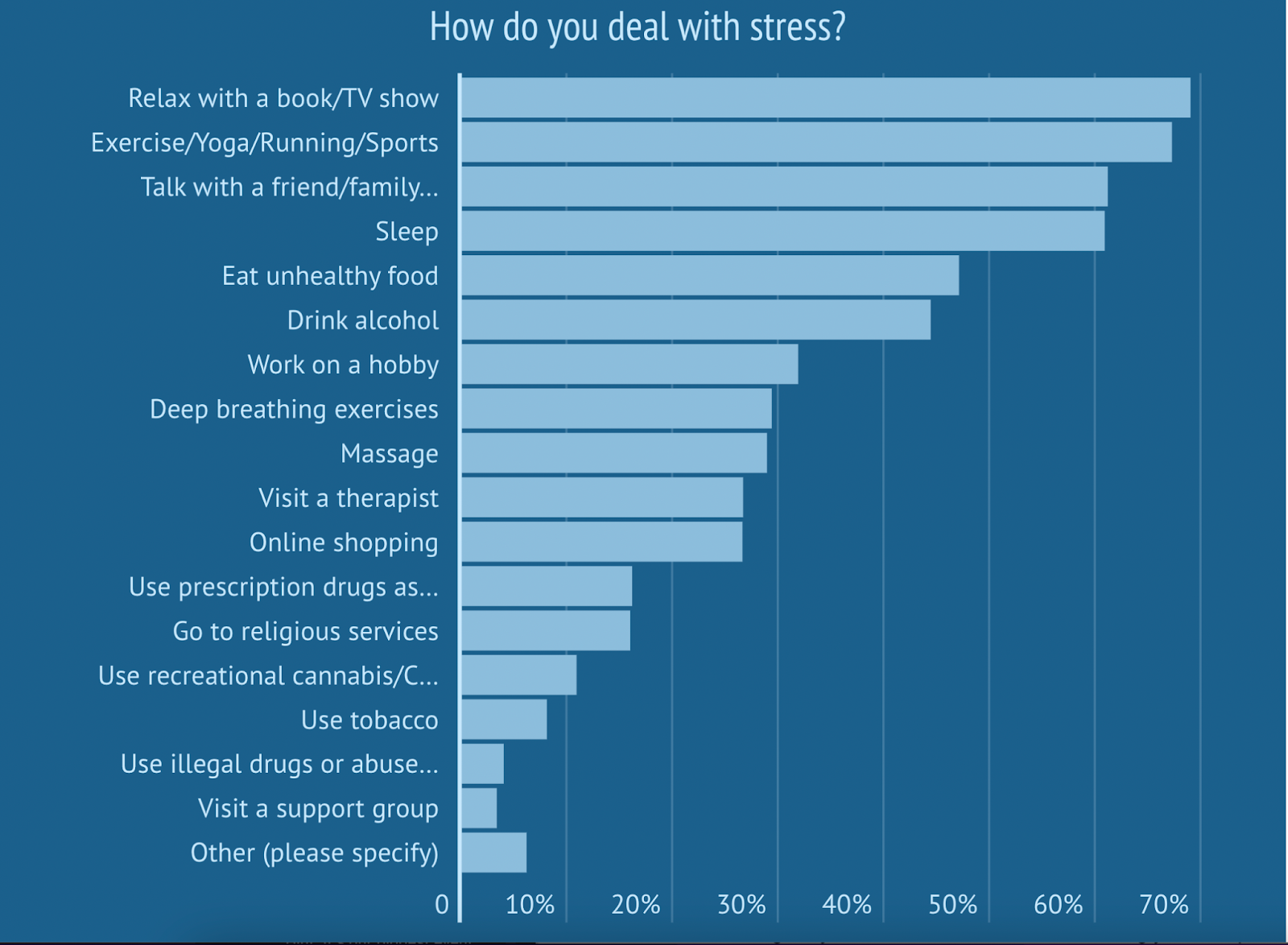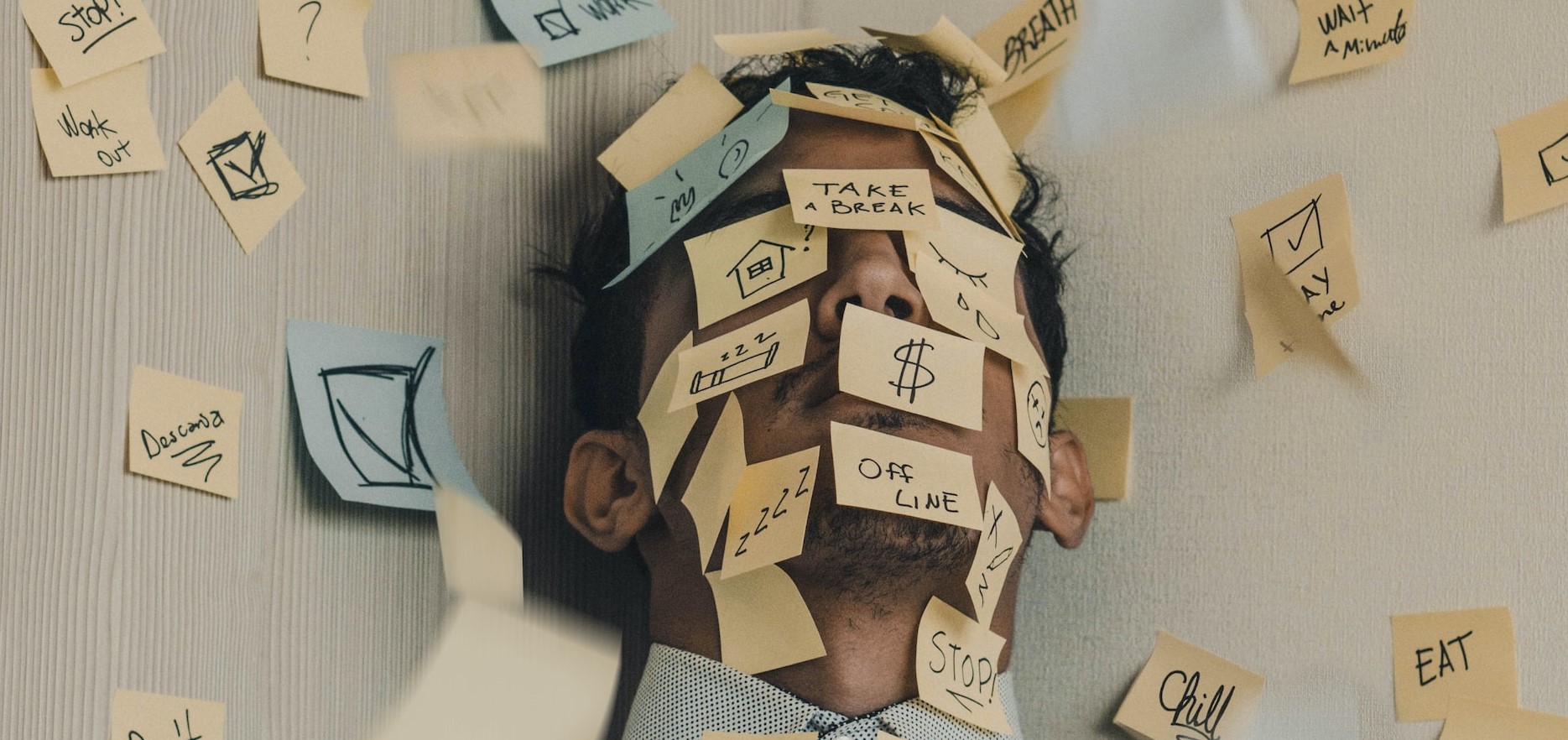It’s inevitable you’ll deal with stress at work, but many turn to unhealthy ways in order to cope with the heavy load on their backs. Because of this, alcoholism and mental health challenges are unfortunately quite common among legal professionals.
Studies find that substance abuse is found at higher rates among lawyers; depression, anxiety and high stress may all contribute to that.
That doesn’t mean it has to be that way for every legal professional, though.
By focusing on healthier alternatives to deal with your legal stress, you can work more productively, be happier overall, and find fulfillment inside and outside of work.
The mental health problem in law
Studies show legal professionals can expect to encounter depression or anxiety themselves or among their peers at some point in their career. And it doesn’t just start when you practice — it starts in law school.
A study titled Suffering in Silence surveyed 3,300 law students from 15 law schools and found that:
- 17% of law students suffered from depression
- 37% of law students reported mild to severe anxiety
- 6% of law students reported having suicidal thoughts in the last year
The numbers for practicing professionals didn’t look much better.
Of the nearly 13,000 lawyers from the study from the Journal of Addiction Medicine, they found that:
- 28% of lawyers suffered from depression
- 19% of lawyers had severe anxiety
- 11.4% of lawyers had suicidal thoughts in the previous year
With these numbers, it’s apparent that mental health needs to be taken seriously in this industry.
Unhealthy coping mechanisms
Many legal professionals (upwards of 40%) feel that mental health isn’t taken seriously at their firm and say they don’t feel comfortable raising concerns about mental health.
To combat this difficult work life, many legal professionals use unhealthy ways to handle the stress. In a Mind Over Matters study, 44% of lawyers responded that they’d drink alcohol and 47% said they’d eat unhealthy food to deal with stress.
One of the main challenges among legal professionals is the culture of drinking alcohol as a social activity and a socially accepted stress reliever.
In law school, students don’t go out for a nice yoga session after class. It’s kegs and happy hours.
And it doesn’t stop there.
The work becomes demanding, and the learned culture of drinking stays strong with post-work drinks or a few beers to relax after a long week.
A study from the Journal of Addiction Medicine found that lawyers use alcohol at a higher rate than other professional occupations. With nearly 13,000 lawyers surveyed, 84.1% said they consumed alcohol over the last year compared to only 69.5% of the general population.
Additionally, it was found that one-fifth of lawyers drank at a hazardous, harmful, or potentially alcohol-dependent level.
If you drink, stress eat, lose sleep, or have other unhealthy coping mechanisms for your job-related stress, you’re not alone. Let’s explore some healthier options.
Healthier alternatives for stress management
While these statistics may seem alarming, the Mind over Matters survey (see image below) showed that many legal professionals do deal with stress in healthier ways.

It’s a good sign that many legal professionals are able to release some stress with things like entertainment, exercise, and family time.
You probably already have some healthy stress-relief strategies in your toolbox. It can help to have a few more ideas, though, so here’s a list of ways you can release that tension.
#1: Take up a new hobby
Hobbies are one of the keys to stress relief. When you have a hobby that you enjoy, it’s much easier to keep your professional and personal priorities in balance.
Social hobbies like team sports, dancing, or clubs give you the added benefit of expanding your support network. Friendships outside of work are especially important. It’s such a relief to spend time with people who aren’t part of your daily grind.
Plus, some hobbies build skills that can help you advance in your legal career.
Maybe you’ve always wanted to try your hand at woodworking. Or, maybe you’re interested in the new pickleball craze everyone is talking about.
Now’s the time to make some friends and get a little exercise!
Whatever it may be, your time will be better spent trying out something new that engages your brain and relieves stress.
#2: Exercise — or just move your body
You don’t have to go to a cycling class or do Crossfit to get the mental health benefits of exercise.
Even a simple walk is a great strategy for preventing mental health issues. This study found that walking 75 minutes a week (that’s just over 10 minutes a day) led to an 18% lower risk for depression.
Get out there and go on a walk!
There are plenty of options to fit more movement into the day. Try these ideas:
- Take your meetings standing up
- Have a yoga break for 15 minutes before lunch
- Sit on a stability ball instead of a chair
- Do some healthy stretches at your desk at least twice every day
- Ride a bike to a favorite local lunch spot
- Start a step challenge with your coworkers
#3: Spend time with loved ones
Never underestimate the power of being around people you love. They build you up, get you out of your own head, and give you a place to vent if you need it.
Always remember: your loved ones are more important than your job. Spending time with them helps you shift your perspective and remember what really matters in your life.
If you’re struggling with your mental health, talk to a close friend or family member about it. They want to help.
#4: Get help when you need it
Ideally, having healthy strategies to deal with stress will prevent you from burning out and keep you happily productive.
Things aren’t always ideal, though.
If you’re already dealing with stress-related illness, substance abuse, or mental health challenges, help is available. Consider using your state’s Lawyer Assistance Program (LAP) or a similar resource.
Concerned about your reputation?
You’re not alone.
Help is often available confidentially, including some services that allow you to seek counseling without revealing your identity. Don’t let worry over someone else’s opinion stop you from seeking the help you need.






